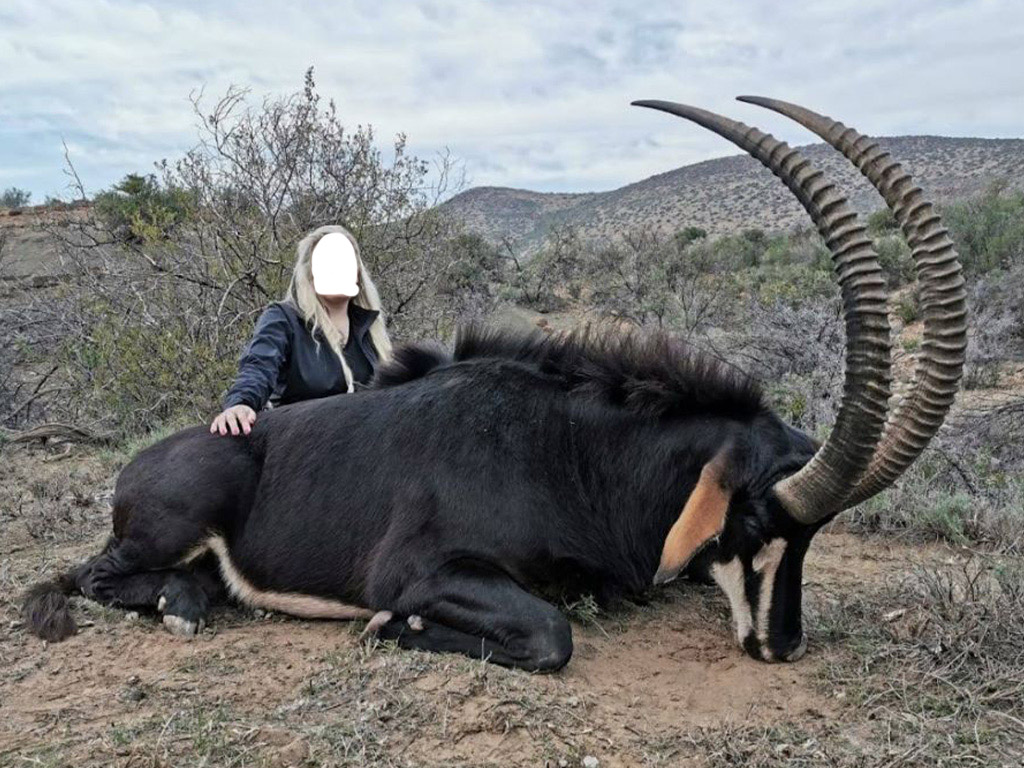
Editorial note: This report relates to PRIVATELY OWNED, FENCED farms and game reserves in South Africa.
With the ever-present threat of human encroachment threatening wildlife throughout the world, protected areas are a core means of protecting the remaining biodiversity. These protected areas can take many different forms, from state-owned and operated national parks and management areas to private land conservation areas. As is the case with state-owned conservation areas, these private land conservation areas (PLCAs) require several management activities that in turn require funding. How this funding is sourced varies greatly from ecotourism to the sale of bushmeat and trophy hunting. Researchers from the University of Rhodes in South Africa set out to examine the effect that a local or international ban on trophy hunting would have on the future of these private land conservation areas through formal interviews with the landowners themselves.
The study was centred around PLCAs in South Africa on the basis that South Africa has one of the largest trophy hunting industries on the continent, which is estimated to generate some R1.96 billion per year ($130 million). In South Africa, PLCAs fall under different levels of protection, including private nature reserves, which are legally gazetted under the Protected Areas Act, or legally binding biodiversity agreements based on contracts. Others still are informally protected in the sense that their conservation potential is not legally recognised, but the area receives protection through the landowners applying a biodiversity conservation model. These informally protected PLCAs are estimated to comprise 14% of South Africa’s land area – fenced off sections of farmland maintained to sustain wildlife.
The researchers interviewed landowners in the Eastern and Western Cap provinces to understand how much revenue each generates through trophy hunting and to understand how land use might change in the event of a ban, as well as the impact it would have on both wildlife and the surrounding communities. Between 2014 and 2015, 72 such PLCAs were randomly selected to analyse their revenue sources for that financial year. A second set of interviews were conducted with 22 different landowners in 2018 to ascertain what the perceived impact of a trophy hunting ban would be.
Of those interviewed that undertook trophy hunting, the revenue generated equated to an average of 36%, though the researchers acknowledged a vast range within this average, from 4% up to 95% of all revenue generated. Other revenue was generated through ecotourism (32%), live game sales (15%) and hunting for meat (12%), with nonwildlife revenue accounting for only 5% of their yearly income. The later, more in-depth, interviews focussed purely on areas that offered trophy hunting. Of those interviewed, 36% of the landowners stated that they would transition away from wildlife-based land use and convert to farming livestock in the event of a trophy hunting ban. Many suggested that to do so would require retrenching their staff contingent and removing or selling all wildlife. Another 27% stated that they would sell the land outright, either because they did not believe any other option would be economically viable or because they had no interest in any other use of the land.

Another 36% of the interviewed landowners suggested that they would transition to other wildlife-based land uses, including ecotourism, as well as selling wildlife or hunting for meat. However, many expressed concerns as to the cost of transitioning to ecotourism, as well as the potential of a saturated market with high tourist expectations as to accommodation and wildlife viewing. Many were concerned that higher volumes of customers would be required to generate the same revenue as trophy hunting, and many felt that their property was not well-positioned on the main tourist routes. 95% of those interviewed believed that a trophy hunting ban would harm conservation, with declines in wildlife numbers and damage to ecosystems.
While the researchers acknowledge that the sample size of this particular study is small, it is the first of its kind to investigate the possible effects of a trophy-hunting ban on single-landowner PLCAs. They argue that vociferous public pressure is having more of an impact on global policy regarding trophy hunting than research and science. While the study does not seek to analyse any of the moral implications of trophy hunting, it does highlight that a ban of trophy hunting could result in the loss of many private conservation areas, many of which are part of key ecosystems in the region. This, in turn, could have a profound effect on biodiversity and wildlife numbers, as well as many human livelihoods.
The researchers argue that this impact cannot be ignored and that a social-ecological approach should be taken to these private conservation areas to increase the owner’s capacity to cope with such a trophy hunting ban. “Such a focus could increase the uptake of scientific evidence in the trophy hunting debate and could serve to identify non-trophy hunting alternative sources of income in the event of a ban.”
The full study can be accessed here: “Impacts of a trophy hunting ban on private land conservation in South African biodiversity hotspots”, Parker, K., De Vos, A. et al. (2020), Conservation Science and Practice.
To comment on this story: Login (or sign up) to our app here - it's a troll-free safe place 🙂.![]()






